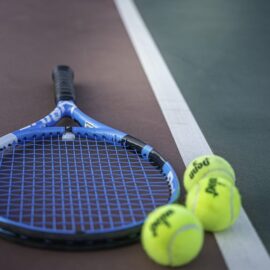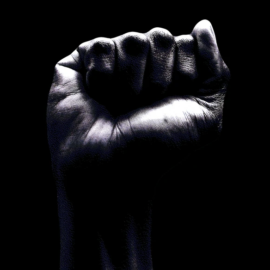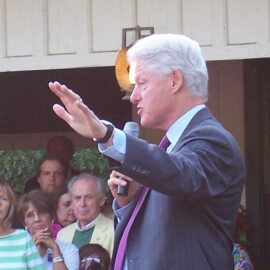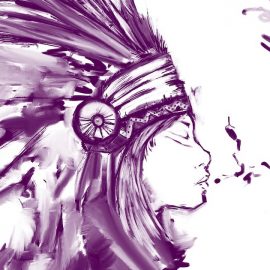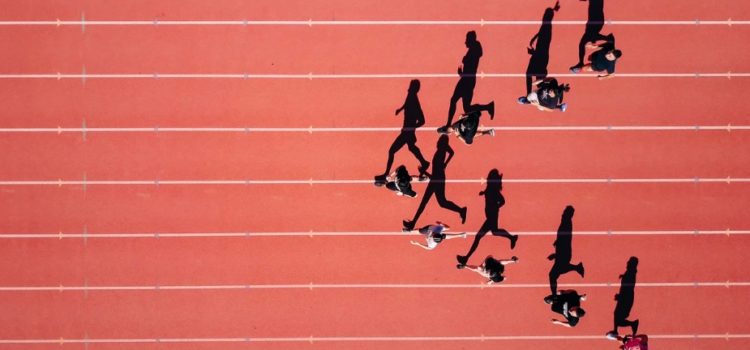
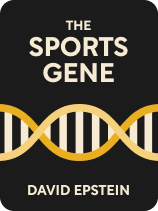
This article is an excerpt from the Shortform book guide to "The Sports Gene" by David Epstein. Shortform has the world's best summaries and analyses of books you should be reading.
Like this article? Sign up for a free trial here .
Why are Jamaicans so good at sprinting? Is their sprinting ability a matter of training or genetics?
Just as Kenya is known for producing talented distance runners, Jamaica is known for producing talented sprinters. Since Jamaicans have largely West African ancestry, a high ratio of fast-twitch muscle fibers may provide an initial advantage, but this doesn’t explain how Jamaica continues to produce so many elite sprinters. According to David Epstein, Jamaican culture can help explain why there are so many elite Jamaican runners.
Here are three reasons why Jamaica produces a disproportionately large number of elite sprinters.
Sprinting Celebrity in Jamaica
Epstein notes that the national 100m dash record-holders in Canada and Great Britain are both originally from Jamaica, and many of the top sprinters in the US have Jamaican roots.
(Shortform note: Most Jamaicans have West African heritage due to the slave trade, and so will share the characteristic high ratio of type 2 muscle fibers discussed in the previous section.)
In a similar pattern to Kenyan runners being heavily represented by the Kalenjin tribe, many top Jamaican runners come from Trelawny, a smaller community in the Northwest of the country. Both Usain Bolt and Veronica Campbell-Brown (who won gold in the 100 and 200 and 100m sprints respectively at the 2008 Olympics) are from Trelawny.
Just as scientists have yet to pin down why athletes in the Rift Valley seem to have adapted to altitude in a uniquely athletic way, researchers are not yet able to explain why more sprinters come from Jamaica.
Reason #1: As Epstein describes it, youth track is to Jamaica what football is to the United States. Epstein describes the Jamaican running event CHAMPS (the national high school track and field championships) as an event akin to the American Super Bowl. One hundred high schools compete over four days, with a stadium full of fans as well as talent scouts from American colleges. The event is even more popular than professional sports in Jamaica.
Championship track meets can certainly draw large crowds in the United States, but they do not carry the excitement, fan base, and potential for celebrity found in important football or basketball games. Epstein notes that there are likely many talented young athletes in the United States who could be very successful in track and field but chose to focus on more popular sports instead. (Another example of nature and nurture, these athletes may have the nature for sprinting but chose football based on nurture.)
(Shortform note: According to a Gallup poll, the most popular sports (measured by viewership) in the United States are football, basketball, baseball, and soccer, in that order. Less than 0.5% of people chose track and field as their favorite sport to watch. This helps to explain why young American athletes would choose to focus on the four sports listed above instead of focusing their speed on the track. In fact, in The Sports Gene, Epstein notes that some people worry that the growing popularity of basketball in Jamaica may draw some promising athletes away from the track.)
Reason #2: Jamaican coaches do not overtrain athletes: Like the Kalenjin, who believe that runners can take up the sport at any age if they have the will and ability, Jamaican coaches are not in a rush to get promising young athletes into rigorous training programs. Epstein notes that, until athletes are 15 or 16, they do not run every day or lift weights, and coaches cautiously avoid overtraining. Epstein also notes that Jamaican coaches believe that the NCAA over-races track and field athletes.
(Shortform note: It is worth noting that the two cultures that arguably produce the world’s top runners both display a different mentality toward age and sports than is common in the United States. Epstein notes that there is a general rush to get promising young athletes in the US into training programs as young as possible, before it is “too late,” Both Kenyan and Jamaican cultures have a more relaxed idea about talent, believing that innate talent will emerge when the athletes are ready.)
Reason #3: While children are not pushed into early hard training, children in Jamaica are pushed to try sprinting from a young age. Young children who show potential are recruited to high schools with competitive track teams, and high school students are even sponsored by local retailers. That such an interest is taken in runners at such a young age is a testament to the cultural importance of sprinting events in Jamaica.
In Jamaican sprinting, we see a similar scenario to Kenyan running. A naturally talented pool of athletes choose to focus on a particular sport in part because of cultural encouragement. Jamaican sprinters may possess a natural talent in sprinting due to their naturally high ratio of type 2 muscle fibers, but they choose to put those gifts to use in sprinting because it is part of the culture that they grew up in. Again, we see that nature and nurture create elite athletes. Epstein suggests that if these naturally gifted athletes were raised in the United States, many of them would likely focus on football (or other popular sports) instead of sprinting, since football holds a special place in American culture.

———End of Preview———
Like what you just read? Read the rest of the world's best book summary and analysis of David Epstein's "The Sports Gene" at Shortform .
Here's what you'll find in our full The Sports Gene summary :
- A look at how our genes play a determining role in our success in sports
- Why practice doesn't always guarantee success
- The fortuitous gene pairings that can lead to elite athleticism

